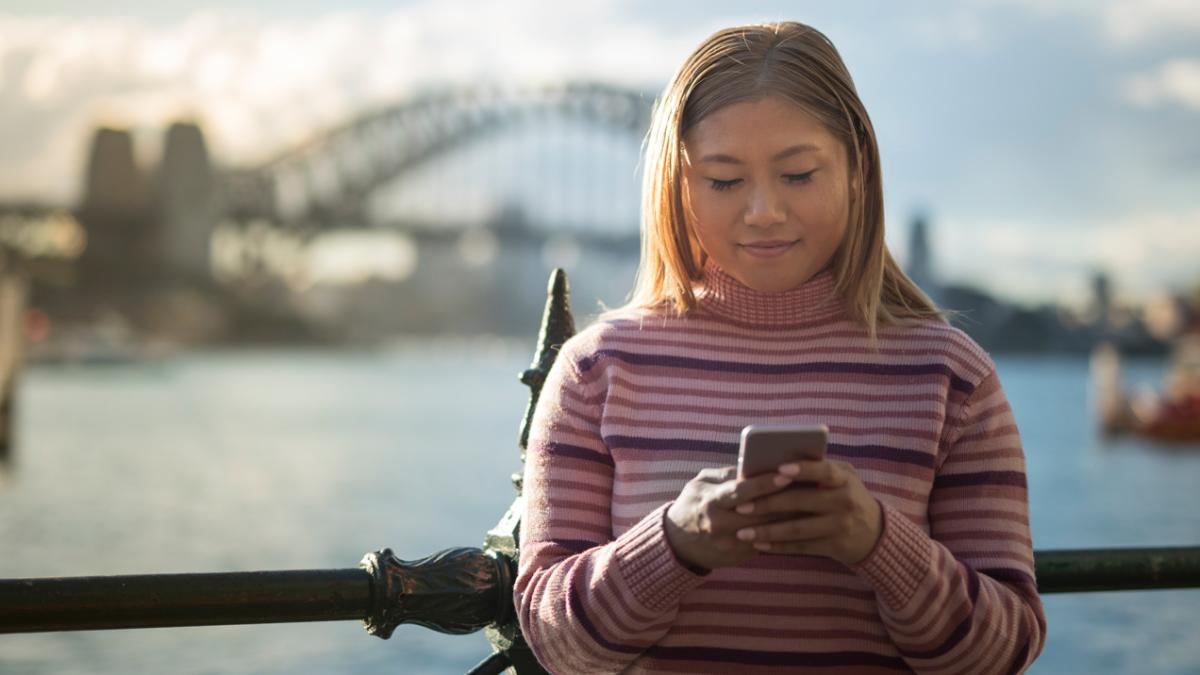
Our phones and flicking through social media apps have been historically notorious for bringing on shitty feelings and a sense of needing to compare ourselves against others online – don’t tell me you haven’t looked at someone on Instagram and felt a little less-than-desirable, because it’s a fib. I’ve felt it, you’ve felt it, it’s real.
Despite all the social media apps we rotate through on our phones, there are some apps out there that can help you manage and maintain your mental health. Whether it’s using guided meditations to re-centre you or sleep-tracking apps to help you get a good few hours’ shuteye and help you settle of a night time (I listen to a loop of “cabin sounds” and it’s…bliss?) there are ways you can sustain good habits and make your phone work for you and your mental health.
[jwplayer qP2pLFfe]
A US study from 2018 found that mental health apps were useful in bridging the gap between those in circumstances where they were unable to seek a professional, and as a supplement to active therapy sessions as a form of self-management and accountability, but for the apps to be wholly effective there needs to be more scientific involvement.
PEDESTRIAN.TV spoke with The Indigo Project‘s founder and head psychologist, Mary Hoang, about what makes a good mental health app, what doesn’t, and how best to use them.
A good mental health app is really anything that adds to your life and doesn’t detract from it. Apps like Facebook and Instagram can be great for social connectivity, but they can also leave you feeling isolated and disconnected.
The key is to develop a deeper connection with yourself and a deeper understanding of what’s drawing you to the apps you keep clicking on – are you after connection? Inspiration? A self-esteem boost? Remember that your digital life is only one part of you, and your embodied life needs to be shown some love too.
But of all the apps out there promising to work wonders on our wonky brains, which of them are worth our time and money? Mary believes that all the good mental health apps have the primary goal of making our lives better, even if that means spending a little bit of coin to remove any pesky advertising.
We jotted down a bunch of apps ranging from guided and self-led meditation to habit-building, focusing, mindfulness, and gratitude that gets the tick of approval from Mary Koang.
HEADSPACE
Though it might set you back a few dollars each year for a subscription, Headspace is a great tool to get you grounded and back in your own body through an extensive library of guided meditations. There’s truly something about the dulcet British tones of Andy Puddicombe that just makes everything else seem so irrelevant.
TOGGL
A touch more ~professional~ than game-based goal-achieving apps, Toggl is a time-tracking app that gets you working productively and making the most of the hours in the day. It’s also got an idle timer in there so it knows when you’re getting stuck down that YouTube hole.
HABITICA
By treating life and those menial tasks like a game that needs completing, Habitca gets us working like Mary Poppins in the children’s bedroom. As you complete tasks and hit goals that present themselves as tiny monsters in the game, you level upr and gain little bits and pieces for your wee game self. But if you set yourself tasks that don’t get done, you might wake up the next day to find your 8-bit character is losing health.
CALM
Mary suggests that meditation apps, though definitely not to be used as a replacement for sessions with a psych, are great for regrounding ourselves and checking back in with our bodies.
Meditation, despite all its benefits, is in no way a replacement for therapy. It has its time and place and is often weaved into the therapeutic process for some people. But if you’re struggling to manage your emotions, finding yourself suffocated by stress, anxiety or depression, or are having difficulty maintaining relationships, a therapy session is worth its weight in gold.
HAPPIFY
Old habits die hard unless you get stuck into them to break that routine. Happify holds evidence-based solutions to get your mental health in form, getting you out of rascally routines and habits that are probably not doing you much good.
The app – which you can download onto your device or boot up on your desktop – uses a range of quizzes and games to get you identifying your thoughts and feelings so you can control and manage them better.
Like I mentioned earlier, apps are a good supplementary tool for you to self-manage, but should not replace actual person-to-person therapy with a professional. Mary told me that if you feel like you can’t get to someone who can help you with whatever feelings or issues you’re struggling through, there are some phone counselling services like BetterHelp who can provide assistance and a therapist in a pinch.
The main thing to remember that your mental health is an ongoing personal. journey, so whatever helps you to feel and be better, and works in with your own life, is going to turn out the best results for you.



